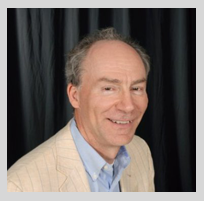October 11 & 12, 2022 | Washington, DC (in-person only, at the National Press Club)
Across the 2 days of the event attendees will have the opportunity to be involved in discussions on the key spectrum topics for the Americas region and beyond, through interactive sessions, networking opportunities, an exhibition area and much more.
This event is part of The Global Spectrum Series. The world’s largest collection of regional spectrum policy conference.
Featuring CommScope’s Mark Gibson on Day 2, Oct. 12, 2:20 PM – 3:25 PM
Session 8: The evolution of Spectrum Sharing – Future models to increase the efficiency of spectrum usage across federal and commercial bands
We are reaching the stage that across the vast majority of the most sought after spectrum bands, there is now no free ‘greenfield’ spectrum remaining unassigned. This means that in order to meet ever increasing demands for additional bandwidth, there is a need to explore new measures to increase the efficiency of spectrum use, and new ways of thinking about repurposing and sharing spectrum. This session will look in depth at some of the innovative new sharing models that have been used across different bands both in Americas and elsewhere, and at how successful they have been. It will look specifically at the 3.1-3.45GHz band and the discussions around different sharing models that are taking place there, but also more broadly at the relative success of different sharing approaches that have been introduced across different bands and scenarios.
- What different models of sharing have been seen both in the US and elsewhere and how successful have these been?
- How efficiently are different federal and commercial spectrum bands being used currently and are there ways that this could be increased?
- To what extent should the authority to make decisions on possible sharing within bands, currently used by federal users, sit with the agency that is using the spectrum, or should final decisions be taken at an NTIA/FCC level?
- Economically, what is the best way to handle the ever-increasing need for additional spectrum across bands which are in the main already fully assigned?
- Should we be looking to introduce ‘sharing by default’ or ‘share it or lose it’ type policies?
- What methods of sharing exist and which are the most appropriate across different bands and use cases?
- What specific sharing models are currently being considered to help free-up
spectrum in the 3.1-3.45GHz and the 3.45-3.55GHz frequencies, and what work is being done to analyse the feasibility of these? How can it be ensured that a sharing solution is found which overcomes the complexities that are in place relating to the release of this key spectrum?
 Mark Gibson |
With over 38 years of spectrum management experience, Mark is responsible for developing domestic and international business opportunities for CommScope. In addition to leading technical and business development efforts for numerous wireless and spectrum-related products and services, he has led efforts to address spectrum sharing between Federal government and commercial users. He leads CommScope’s CBRS efforts on the Spectrum Access System/Environmental Sensing Capability and the efforts to develop, test and certify the Automated Frequency Coordination system for 6 GHz unlicensed bands. He is a board member of the CBRS Alliance and an officer on the board of the Wireless Innovation Forum. He is a member of the Commerce Spectrum Management Advisory Committee, where he has also co-chaired working groups related to spectrum sharing and data exchange issues and has testified before the U.S. Congress on spectrum-related matters. He has led spectrum management efforts including spectrum sharing analysis protocols and sharing criteria, as well as development of engineering services and software products. He speaks frequently and has authored several papers on spectrum sharing and relocation and has advised numerous wireless participants in their system design. He is a Life Member of IEEE. He has an amateur radio license and is an instrument-rated commercial pilot. |

